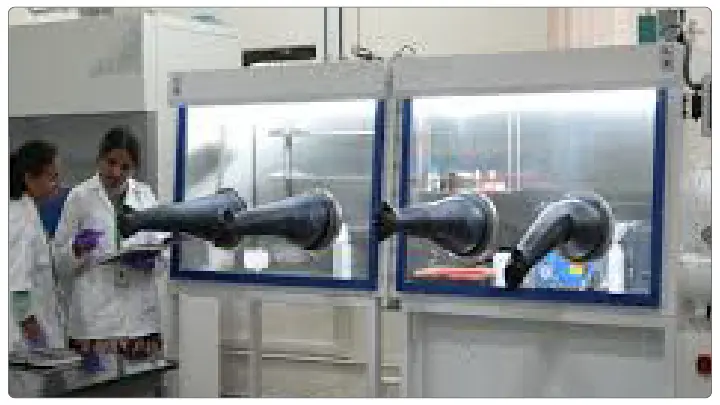Pioneering Energy: MIT-WPU Launches India’s First Private Battery Research Lab
In a groundbreaking step toward accelerating India's clean energy transition, the MIT-World Peace University (MIT-WPU) has launched a state-of-the-art Battery Fabrication and Research Facility dedicated to lithium-ion (Li-ion) and sodium-ion (Na-ion) technologies. Being a pioneer in a private Indian university, the new center sets MIT-WPU as one of the pioneers in battery technology sustainable technology development. The project technically contributes to the national objectives to set India as an independent center of superior energy storage systems.

This state-of-the-art facility provides an end-to-end capability whereby the synthesis of active materials and solid-state electrolytes, coin cell fabrication, and subsequent electrochemical evaluation can be conducted. This type of holistic battery R&D ecosystem is exceptional even in the rest of the world and establishes an example of academic-led innovation. The lab offers a combination of academic-industry and real-time technology translation projects within a single roof. Moreover, as the global battery market is fast-growing, with the emergence of the new research center at MIT-WPU, its core focus is not only to make contributions in the area of innovation but also to create technologies that are affordable, scalable, and customizable to the Indian environment.
This effort centers around the strong, active research group at the university focusing on the next-generation electrode materials that may deliver both higher energy density and longer cycling cycle life. Solid-state electrolytes (SSEs) are being advanced and include the creation of glass-polymer composites and ceramics based electrolytes. They offer better ionic conductivity and greater thermal stability than previous liquid-based electrolytes. Furthermore, the center is also researching novel battery formats, including paper-based batteries, which have been developed with the help of Mid Sweden University. This may lead to new possibilities in flexible electronics, medical devices, and wearable technologies.
Speaking about the initiative, Prof. Dr. Bharat Kale, Director of the Centre of Excellence in Materials Science at MIT-WPU, shared his vision
"The group is working on paper batteries in collaboration with Mid Sweden University. This facility not only fosters academic and industry collaboration but also serves as a vital platform for training future talent. With greater support from national funding agencies like ANRF and others, private institutions like ours can significantly contribute to India's clean energy future. Our lab is built to address real-world challenges and ensure India’s leadership in the global battery race."